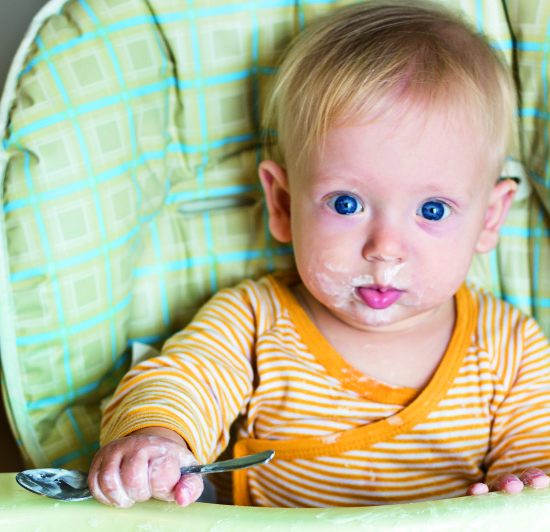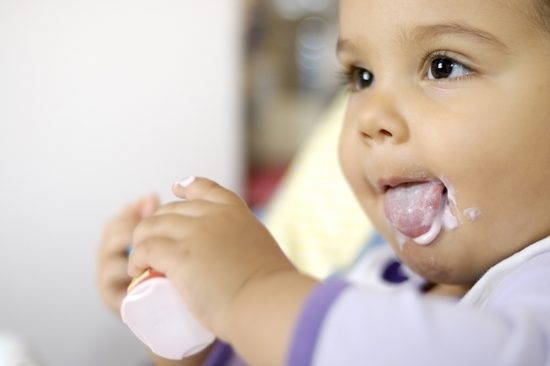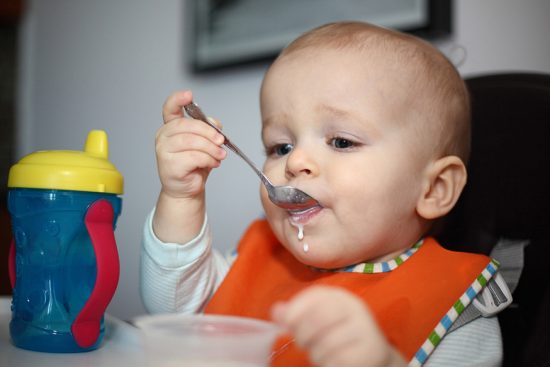It can be hard to tell if your child has a food intolerance or an allergy. We look at signs of a food intolerance, what you can do to help and how to cope.
Having a food intolerance means the body finds it hard digesting a particular food or foods. This causes a reaction and unpleasant symptoms. A food intolerance isn’t the same as a food allergy because no immune system reaction takes place.
It can be hard to diagnose a food intolerance, as symptoms could be caused by something else and there are no tests for it.

Symptoms usually occur some time after eating the food. Compared to an allergic reaction, a larger amount of food is needed to trigger symptoms and these are never life-threatening.
The symptoms of a food intolerance are different to those of allergies and may include repeated episodes of:
The most commonly suspected intolerance in babies and small children is lactose intolerance.
Lactose is a sugar found in all milks. It’s made by the mother’s body and is not related to her diet.
Lactose intolerance is different from cow’s milk protein allergy. Someone with lactose intolerance does not make enough of the enzyme lactase, which is needed to digest lactose .
This means lactose ferments in the gut and produces acids and gases resulting in liquid/frothy/green poos, farting and discomfort.

Secondary lactose intolerance
This is the most common type of lactose intolerance affecting otherwise healthy babies and children.
It’s a temporary condition that can result from something disturbing the gut, such as gastroenteritis (a tummy bug) or a long course of antibiotics.
The NHS suggests parents continue to give their baby their usual milk.
With an older child parents may wish to exclude solid foods containing dairy products while the gut is recovering.
Some babies born before 37 weeks of pregnancy may not yet be producing a lot of lactase but this will usually improve as they get older .
Primary lactose intolerance
This is a gradual decrease in lactase production which happens naturally in many people worldwide, usually after they are at least 2-5 years old .
Some human populations have evolved ‘lactase persistence’ and will continue making lactase, which means they can digest milk and dairy products as adults.
Congenital lactose intolerance
This is a very rare inherited condition which means a baby will not produce any lactase .
This will be picked up in the early days after a baby is born and they will be prescribed a special formula milk.
If you think your child has a food intolerance, you can speak to your GP as well as to an NCT Breastfeeding Counsellor on our Infant Feeding Support Line (8am-midnight): 0300 330 0700.
Always check with your GP before eliminating foods long term
Always check with your GP before eliminating foods from your child’s diet in the long term.
Most children who have secondary or primary lactose intolerance can consume small amounts of lactose without experiencing symptoms.
You may be referred to a dietician for nutritional advice because it’s important for young children to have certain nutrients in their diet.

If your little one has symptoms of a food intolerance it can be very stressful. For practical and emotional support you can our Infant Feeding Support Line (8am-midnight): 0300 330 0700.
Your GP will be able to help you work out what may be causing your child’s symptoms and refer you to a specialist if necessary .
While it can be tough getting to the bottom of the cause, most intolerances are mild and can be managed.
Food manufacturers are getting better at catering for people with food allergies and intolerances, so there’s now more choice available.
Our support line offers practical and emotional support with feeding your baby and general enquiries for parents, members and volunteers: 0300 330 0700.
You might find attending one of our Early Days groups helpful as they give you the opportunity to explore different approaches to important parenting issues with a qualified group leader and other new parents in your area.
Make friends with other parents-to-be and new parents in your local area for support and friendship by seeing what NCT activities are happening nearby.